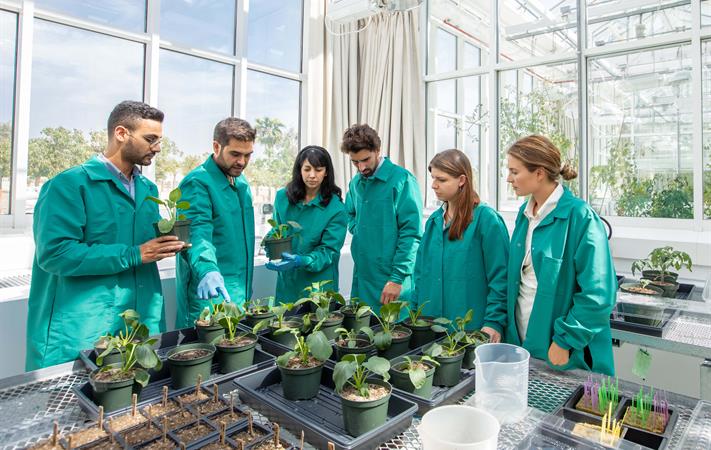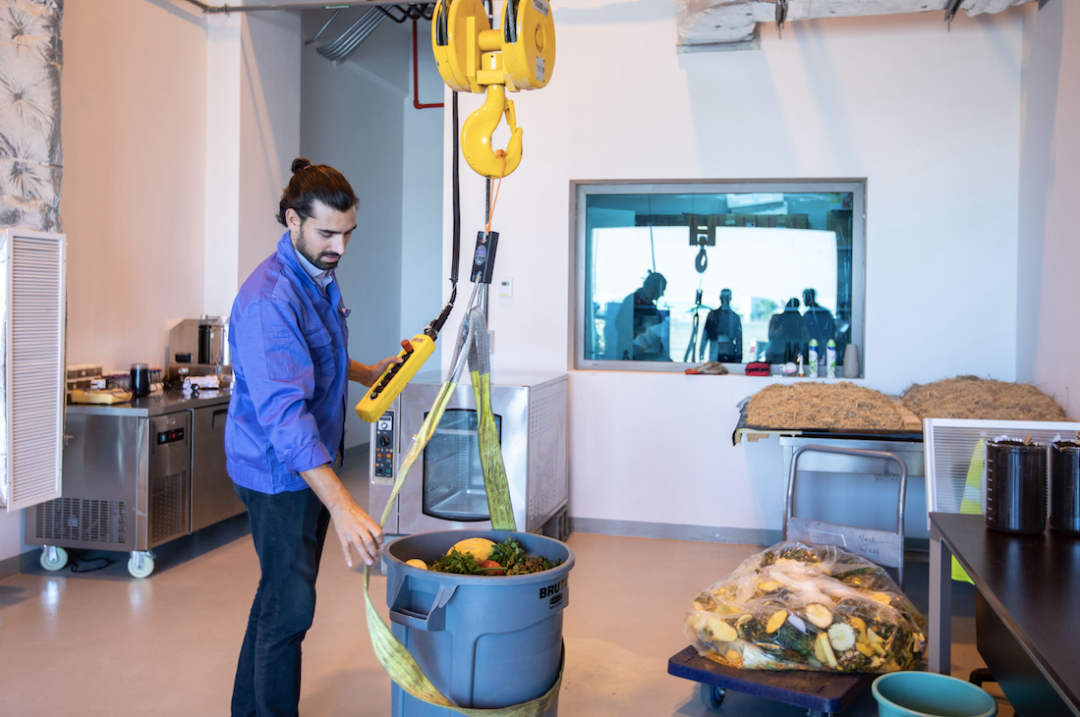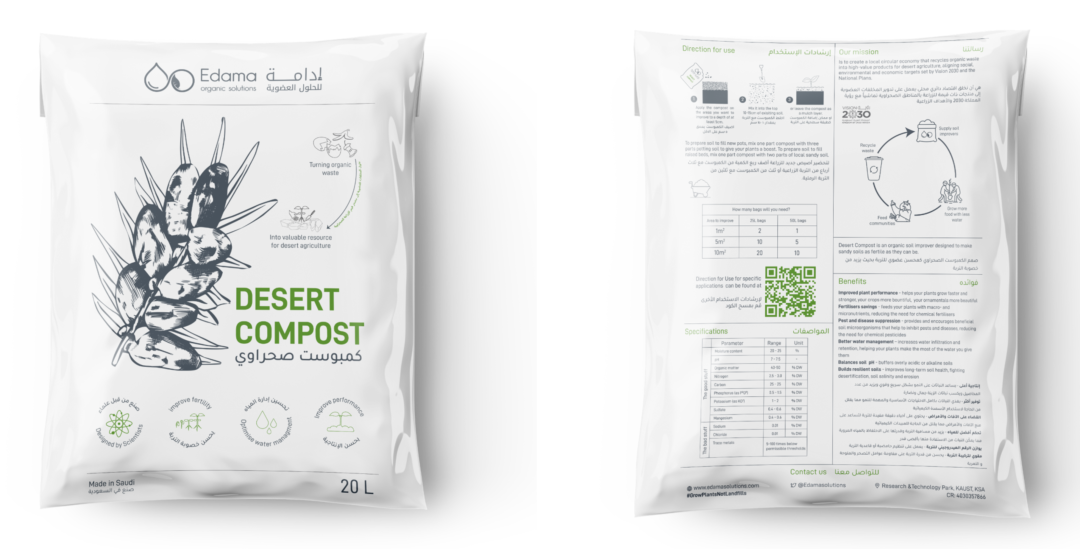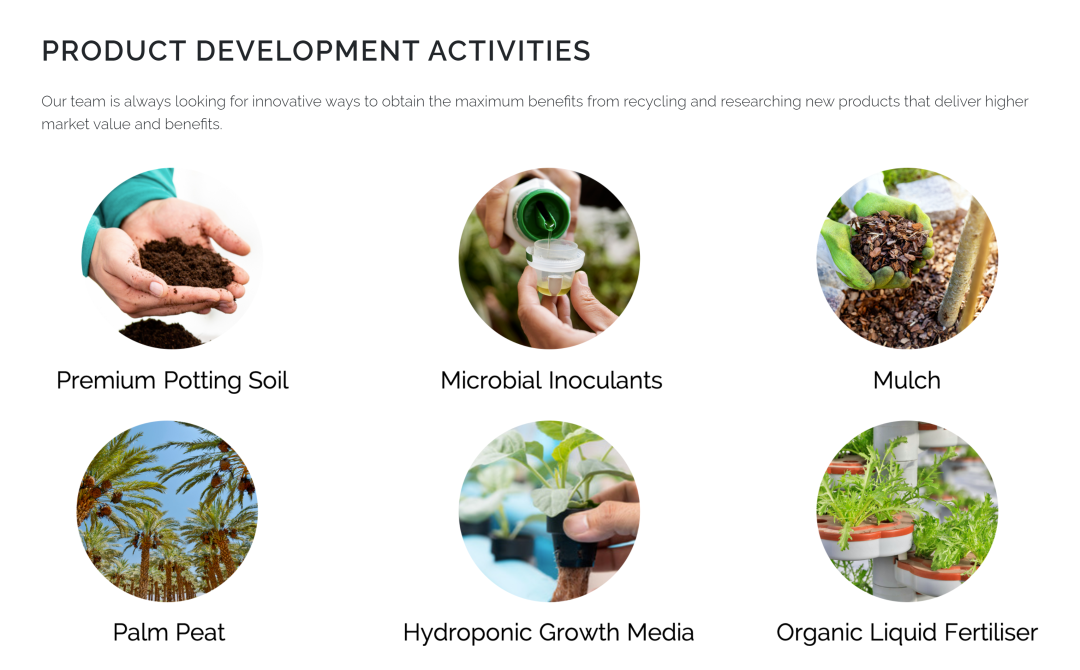Disclaimer:
Please be aware that the content herein is comprised of personal reflections, observations, and insights from our contributors. It is not necessarily exhaustive or authoritative, but rather reflects individual perspectives. While we aim for accuracy, we cannot guarantee the completeness or up-to-date nature of the content.
https://youtu.be/wgfWy59tv78


Edama Organic Solutions are the leading entity in creating a local circular economy that recycles organic waste into high-value products for desert agriculture in Saudi Arabia. They align social, environmental and economic targets set by Saudi Arabia's vision and the Sustainable Development Goals. Founded by 4 young innovators from different backgrounds, their journey started in 2017 at King Abdullah University for Science and Technology (KAUST), where they built their first composting pilot facility and since then they have been testing and improving their processes and products taking advantage of the scientific expertise of their team and the KAUST core-labs facilities. In 2018, they won the SAAB-funded Taqadam accelerator program competition from a cohort of over 400 start-up teams from all across Saudi Arabia. In 2019, they expanded their composting operations and established strong relationships with key stakeholders and customer segments. In 2020, they obtained seed funding from the KAUST Innovation Fund and secured their first contract for designing, building and operating a commercial-scale composting facility with recycling capacity of 11,000 tonnes, which will become operational in Q3 2021 (August). By 2022 they expect to build 3 additional recycling facilities, and by 2025 their goal is to reach 3M tonnes of organic waste recycling capacity. Edama directly addresses food security, water scarcity and pollution issues.

Desert Compost is Edama's flagship product, designed to make sandy soils as fertile as they can be. It is made by recycling food waste from supermarkets, restaurants, commercial activities and households, combined with green waste from landscaping and farming activities. Healthy soils support more resilient and diverse plants in the short and long term, making farmers and landscapers' lives easier. As chemical inputs costs are reduced and yields increase, crop cultivation revenues are typically higher, which translates into increased profit for local farmers. Reduced water consumption translates into cost savings for the society, supporting local farmers, land developers and landscapers to comply with water use regulations and safeguard scarce freshwater resources. Desert Compost is a high quality product with better water retention properties, nutrient profile and benefits to soil structure and fertility than rival products in the market. Plants grown in sandy soil with compost have up to 500% higher yield using only 25% more water, which translates into 75% water use reduction for the same yield. Consistent results were found in tests with several crops including basil, tomatoes, bok choi, eggplants, okra, beans, squash.

Other products the Edama team are developing includes date palm waste, which is a very abundant local feedstock. Currently, it is either burned or landfilled causing serious threats for the environment and public health. Because of its highly fibrous composition, it cannot be processed with normal composting techniques. At Edama, they developed treatments to convert date palm waste inputs into a valuable growth medium that supports water-efficient cultivation practices, drawing inspiration from a similar process used to convert coconut husks into coco peat, a soil input product produced in South East Asia. This is one of many new innovations and products Edama is working on.
https://www.edamasolutions.com/about
 Consent to share form or official link.
Consent to share form or official link.

 11Sustainable cities and communities
11Sustainable cities and communities 12Responsible consumption and production
12Responsible consumption and production 13Climate action
13Climate action 15Life on land
15Life on land



Comments
Log in to add a comment or reply.